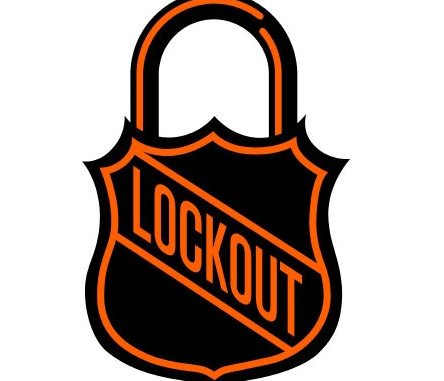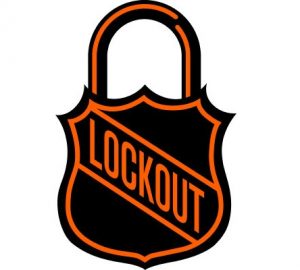
Bobby Lemaire, Staff Writer
The 2011-2012 National Hockey League season was one of the most memorable in hockey history. 16 of the league’s 30 teams averaged a sellout every game, while the league made an astounding 3.3 billion dollars in revenue, which is the most in the history of the sport. The playoffs were fantastic with overtime thrillers and the eighth seeded Los Angeles Kings making an amazing run, led by goaltender Jonathan Quick, to a Stanley Cup championship.
With the success the league has had, why did Commissioner Gary Bettman and the owners lock out the players on September 15 when a deal was not agreed on? The main issue that caused the recent NFL lockout and the 2011 NBA lockout that forced the season to start more than two months late was money.
This isn’t the first time that a labor dispute got in the way of an NHL season. In 1994, Gary Bettman and the owners locked the players out, forcing the 1994-1995 season to be shortened to only 48 games. Then, ten years later, the owners locked the players out once again, eventually leading to the cancellation of the entire 2004-2005 hockey season.
While losing a full season was devastating to the league and its fans, it ultimately made the sport more enjoyable and affordable. The owners implemented a salary cap, which meant that all the teams can only spend a certain amount of money on player contracts. The purpose of the salary cap is to even out the spending between the teams that make the most money, (New York Rangers, Boston Bruins, Montreal Canadiens) and the teams that struggled to court free agents to their team (Florida Panthers, Phoenix Coyotes, Tampa Bay Lightning). When a deal was finally reached, the players agreed to the cap and suffered an average 24 percent pay cut. With this collective bargaining agreement, the split of the profit was 57 percent for the players and 43 percent for the owners.
The lockout allowed the owners and players to agree to speed the game up. They agreed to strongly enforce holding and hooking penalties in order to give the game more speed and an advantage to the skilled players. Players like Detroit Red Wings forward, Pavel Datsyuk, who many agree is the most skilled player in the league, can now skate up the ice and work his magic without players using bully tactics to try and slow him down.
Now fast forward to today where the owners decided that they want more money. Commissioner Bettman and the owners put out a proposal in which they cut the players’ percentage of revenues from 57 percent to 46 percent. Bettman is citing that this change is necessary because some teams are losing too much money. A recent report from the NHL offices state that the league has lost around 240 million dollars in the past two seasons. While they have said that, they have not given any information as to where this money has gone. While there are some teams who are struggling financially, to say that the league is losing 120 million dollars a year is preposterous. It’s just greedy people realizing how hockey has grown so much, so they now want a bigger piece of the pie. During the 04-05 lockout, a majority of the support from the fans were going to the owners. This time around, it is the complete opposite. With the overall attendance of the league going up, the fans realize that the owners are being selfish. The NHLPA (National Hockey League Player Association) said they are willing to concede some money back to the team, but also presented a revenue sharing system, where the teams who make a lot of money will give some of their surplus to the struggling teams. The owners simply dismissed this idea.
Another main reason why the fans are siding with the players is the use of social media. Players are constantly using Twitter to speak to the fans telling them they want to play hockey this season.
Another difference for the players this time around is that the NHLPA is more unified. Under Donald Fehr, who was the former leader of Major League Baseball’s Players Union, the players are constantly meeting with each other and showing support.
The biggest loser in this situation is clearly the fans. When they missed the entire season in 04-05, they came back the next year. It is not so likely that will happen again if this lockout is prolonged. It isn’t fair to the hardworking people who pay thousands of dollars for season tickets to have to frequently miss out on the sport they love. If both sides are smart, they will meet as much as possible over the course of the next couple of weeks and get a deal done. It is still pretty early in the hockey season and a majority of the schedule can be salvaged. There just needs to be some compromise.
Leave a Reply